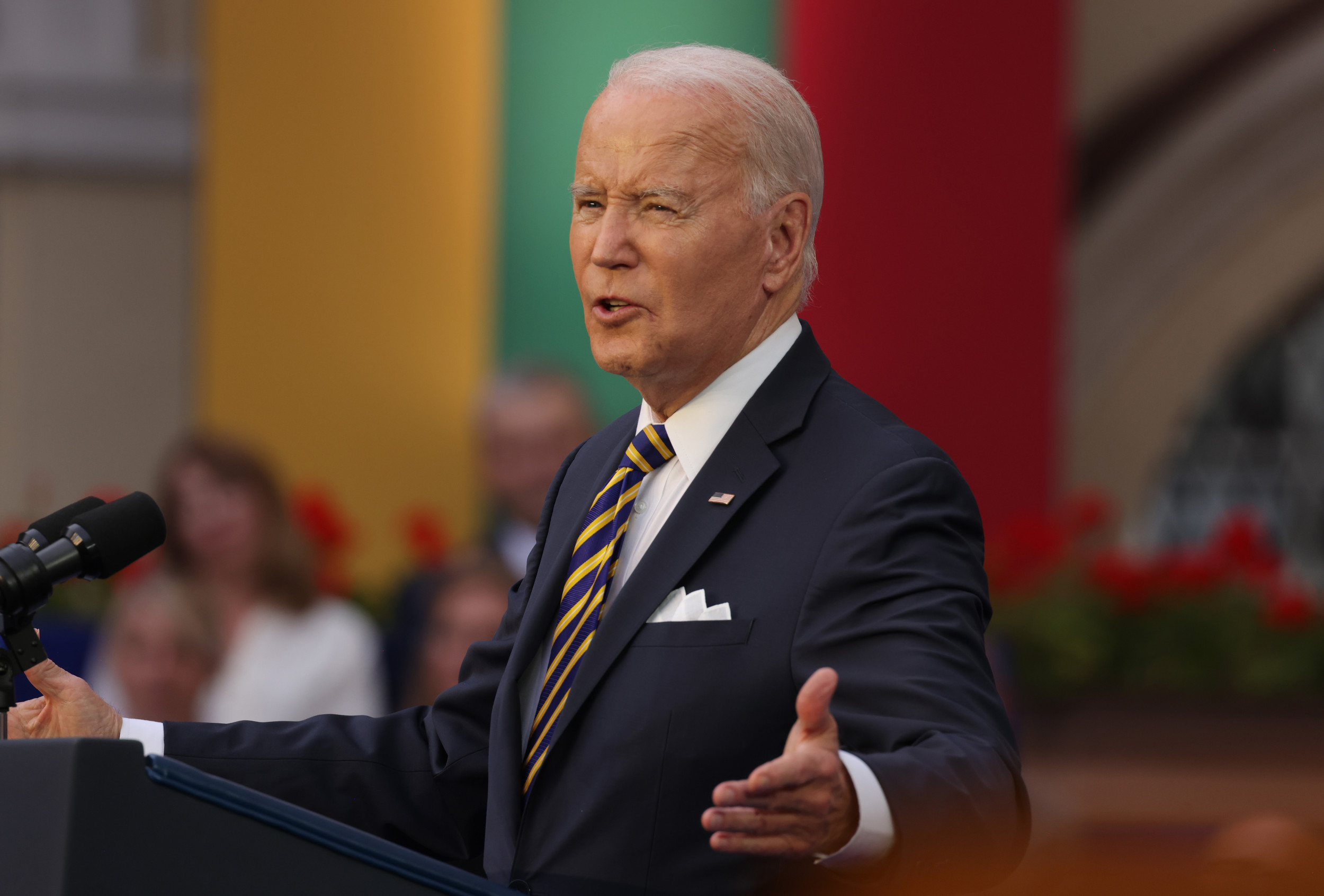Biden’s Stance on NATO: Biden Nato Speech

Biden nato speech – Biden has consistently expressed strong support for NATO, emphasizing its critical role in maintaining global security and deterring potential threats. He believes that NATO is a vital alliance that has helped to preserve peace and stability in Europe for over 70 years.
Biden’s Speeches and Actions
Biden has repeatedly affirmed his commitment to NATO in speeches and official statements. In his 2021 address to the Munich Security Conference, he declared that “NATO is the cornerstone of our collective defense” and that “an attack against one Ally is an attack against all.”
Biden has also taken concrete actions to demonstrate his support for NATO. He has increased US military presence in Europe, participated in NATO exercises, and provided military assistance to NATO allies. Additionally, he has worked to strengthen NATO’s political and diplomatic capabilities.
Biden’s address to NATO allies emphasized the importance of unity in confronting global challenges. While the speech focused on geopolitical issues, it also hinted at domestic concerns. To better understand Biden’s broader agenda, it’s worth exploring his press conference following the speech, where he addressed a range of questions, from economic recovery to the ongoing pandemic.
Challenges and Criticisms
Despite Biden’s strong support for NATO, there have been some challenges and criticisms of his approach. Some critics argue that Biden has not done enough to address the growing threats posed by Russia and China. Others have expressed concerns about the potential for NATO to become embroiled in conflicts beyond its traditional sphere of influence.
Biden’s speech at the NATO summit highlighted the unity and strength of the alliance. With the inclusion of new nato members , the alliance is now stronger than ever. Biden emphasized the importance of collective defense and the need to stand together against common threats.
NATO’s Response to the Ukraine Crisis

In the face of Russia’s aggression in Ukraine, NATO has taken a number of steps to deter further Russian aggression and support Ukraine’s defense. These steps include deploying additional troops to Eastern Europe, providing military assistance to Ukraine, and imposing sanctions on Russia.
Effectiveness of NATO’s Actions, Biden nato speech
NATO’s actions have been effective in deterring further Russian aggression. Since the deployment of additional troops to Eastern Europe, there have been no further Russian incursions into NATO territory. Additionally, the provision of military assistance to Ukraine has helped the Ukrainian military to resist Russian forces and regain some lost territory.
Potential Implications for NATO
NATO’s involvement in the Ukraine conflict has a number of potential implications for the future of the alliance. First, it could lead to a more permanent NATO presence in Eastern Europe. Second, it could lead to a closer relationship between NATO and Ukraine. Third, it could lead to a more confrontational relationship between NATO and Russia.
The Future of NATO
NATO’s future is uncertain, as the alliance faces a number of challenges and opportunities in the coming years. One of the key challenges is the rise of China, which is increasingly challenging the United States’ global dominance. China’s growing military power and economic influence are causing concern among NATO members, who are worried that China could eventually become a threat to the alliance.
Another challenge facing NATO is the ongoing conflict in Ukraine. Russia’s annexation of Crimea and its support for separatists in eastern Ukraine have raised concerns about Russia’s intentions towards NATO members. The conflict in Ukraine has also highlighted the need for NATO to strengthen its defenses against Russia.
Despite these challenges, NATO also has a number of opportunities in the coming years. One opportunity is the growing interest in NATO membership from countries in the Asia-Pacific region. Japan, South Korea, and Australia are all considering joining NATO, which would significantly expand the alliance’s reach and influence in the region.
Another opportunity for NATO is the development of new technologies, such as artificial intelligence and cyber warfare. These technologies could help NATO to improve its defenses against a range of threats, from terrorism to cyberattacks.
NATO’s Role in a Changing Global Order
NATO’s role in a changing global order is uncertain. The alliance was founded in 1949 to counter the threat of the Soviet Union, but the Soviet Union collapsed in 1991. Since then, NATO has struggled to find a new mission.
Some argue that NATO should focus on new threats, such as terrorism and cyber warfare. Others argue that NATO should focus on traditional threats, such as Russia. Still others argue that NATO should focus on both new and traditional threats.
The future of NATO will depend on the decisions that its members make in the coming years. The alliance will need to adapt to the changing global order in order to remain relevant and effective.
Recommendations for NATO’s Future
There are a number of recommendations that can be made for NATO’s future. First, the alliance should focus on both new and traditional threats. Terrorism, cyber warfare, and Russia all pose serious threats to NATO members.
Second, NATO should expand its membership. Japan, South Korea, and Australia are all countries that would make valuable contributions to the alliance. Expanding NATO’s membership would also help to deter aggression from China and Russia.
Third, NATO should invest in new technologies. Artificial intelligence and cyber warfare are both areas where NATO needs to invest in order to stay ahead of its adversaries.
By following these recommendations, NATO can adapt to the changing global order and remain relevant and effective for years to come.